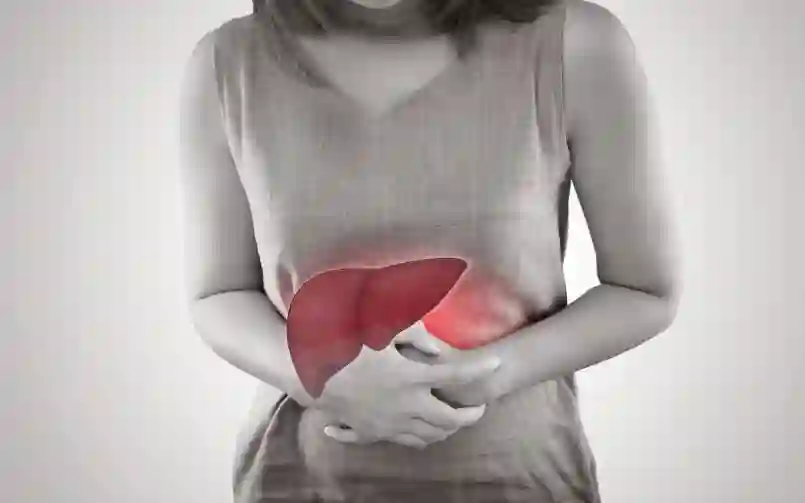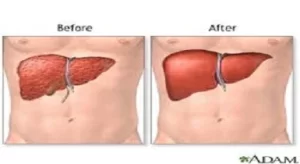To build awareness and understanding importance of liver in human body and how liver ailments can be treated.Hepatitis is a general term referring to inflammation of the liver. It may result from various causes, due to viral, bacterial, fungal, and parasitic organisms. Non-infectious causes could be due to alcohol, poisonous substances, and autoimmune hepatitis. Viral hepatitis is one of the major causes of liver disease.
Viruses that primarily attack the liver are called hepatitis viruses. There are several types of hepatitis viruses including types A, B, C, D, E, and possibly G. Types A, B, and C are the most common.
All hepatitis viruses can cause acute hepatitis and liver disease.
Causative agents of Hepatitis:
• Hepatitis A: Is transmitted through consuming food or water, contaminated by faeces from a person infected with hepatitis A.
• Hepatitis B: Is transmitted through contact with infectious body fluids, such as blood, vaginal secretions, or semen, containing the hepatitis B virus.
• Hepatitis C: is transmitted through direct contact with infected body fluids, typically through injection drug use and sexual contact.
• Hepatitis D: also called delta hepatitis, hepatitis D is a serious liver disease caused by the hepatitis D virus (HDV). HDV is contracted through direct contact with infected blood.
• Hepatitis E: a waterborne disease caused by the hepatitis E virus (HEV). Hepatitis E is mainly found in areas with poor sanitation and typically results from ingesting faecal matter contaminated with virus.
Signs and Symptoms of Hepatitis:
• Fatigue
• Flu-like symptoms
• Dark urine
• Pale stool
• Abdominal pain
• Loss of appetite
• Unexplained weight loss
• Yellow skin and eyes, which may be signs of jaundice
Diagnosis of tests to detect hepatitis:
• Physical Examination and clinical evaluation of patient
• Liver function tests
• Abnormal Ultrasound
• Liver biopsy
Treatment of hepatitis:
- Adequate diet and rest, maintenance of proper hygiene, avoid sharing of personal items and physical contact with those who are infected with hepatitis B and D. Maintain adequate hydration in case of diarrhoea and vomiting.
- Antiviral medications are used to treat both acute and chronic forms of hepatitis C.
Measures to prevent Hepatitis
Prevention of diseases through vaccination of Hepatitis A and B:
The hepatitis A vaccine is available to prevent this infection. Most children begin vaccination between ages 12 and 18 months.
• Vaccination is recommended for all children age 12 months or older, for travellers to certain countries, and for people at high risk for infection with the virus. The vaccine is given as two shots, six months apart.
• It’s a series of two vaccines. Vaccination is also available for adults and can be combined with the hepatitis B vaccine. The vaccine confers long-term protection against clinical illness and chronic hepatitis B virus infection.
- Washing fruits and vegetables is essential to prevent especially to prevent Hepatitis A.
- Reducing consumption of outside food
- Keeping your surroundings hygienic and Maintain proper sanitation
Hepatitis B Vaccine is recommended:
The CDC recommends it for all babies, who should get their first dose as new-borns.
• Anyone who has a sexual contact with a partner with hepatitis B
• Anyone being evaluated or treated for an STD
• Men who have sex with men
• People who share needles used to inject drugs
• Anyone who lives with someone who has hep B
• People with end-stage kidney (renal) disease
• Medical workers
• Travelers to regions with moderate to high rates of hepatitis B
• People with chronic liver disease
• People with HIV infections
Hepatitis Vaccination A:
The CDC recommends that all children between ages 12 months and 23 months get this vaccine.
The following people are also at risk for the disease and should be vaccinated:
• Anyone who uses illegal drugs
• People with chronic (long-term) liver disease
• Anyone treated with blood clotting drugs, such as people with haemophilia
• People who work with HAV-infected primates or in HAV research laboratories. (HAV is like HIV in animals.)
• Travelers to countries where hepatitis A is common.
• Countries susceptible to gastrointestinal disease
In case you are experiencing any signs and symptoms of liver disease, please visit Wockhardt Hospital.
We are a premiere hospital in the country specializing in the treatment of digestive disorders. We provide comprehensive digestive care to our patients. The digestive care centre at Wockhardt Hospitals makes it a centre for excellence with our clinical expertise, to treat such conditions affecting the digestive system. For further information or any gastroenterology services or liver transplant related query visit our experts at Wockhardt Hospital.




